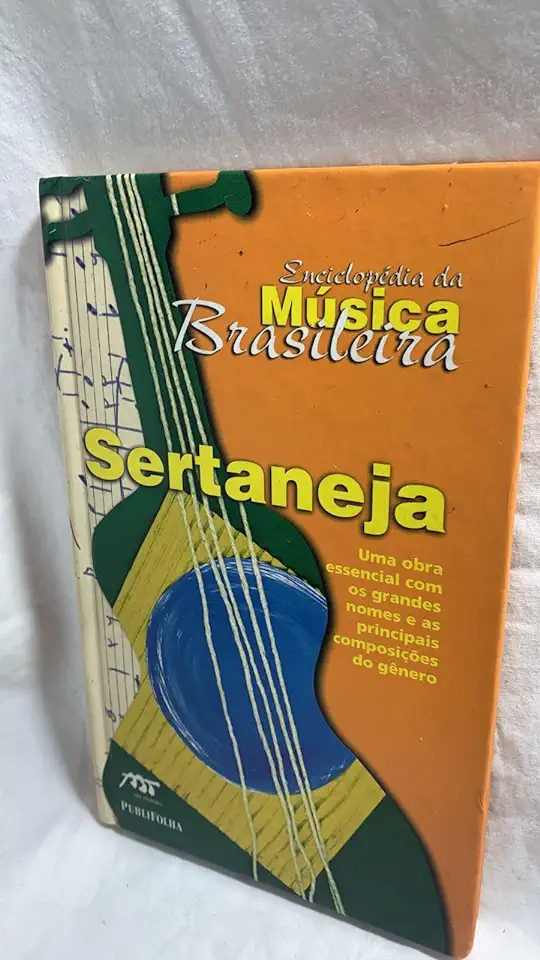
Sertaneja - Encyclopedia of Brazilian Music - Publifolha
Sertaneja: Encyclopedia of Brazilian Music
A Comprehensive Guide to the Music of Brazil
Sertaneja is a comprehensive encyclopedia of Brazilian music, featuring over 1,500 entries on artists, genres, instruments, and more. This book is a must-have for any fan of Brazilian music, or for anyone who wants to learn more about this vibrant and diverse musical culture.
Sertaneja: A History of Brazilian Music
The history of Brazilian music is a long and complex one, dating back to the arrival of the Portuguese in the 16th century. Over the centuries, Brazilian music has been influenced by a wide variety of cultures, including African, European, and indigenous Brazilian music. This has resulted in a rich and diverse musical tradition that is unlike any other in the world.
Sertaneja: The Different Genres of Brazilian Music
Brazilian music is divided into a number of different genres, each with its own unique sound and style. Some of the most popular genres of Brazilian music include:
- Samba: Samba is the most popular genre of Brazilian music, and is known for its lively rhythms and catchy melodies.
- Bossa nova: Bossa nova is a more relaxed genre of Brazilian music, and is known for its smooth vocals and sophisticated harmonies.
- Música sertaneja: Música sertaneja is a genre of Brazilian music that originated in the countryside, and is known for its simple melodies and heartfelt lyrics.
- Axé: Axé is a genre of Brazilian music that is popular in the northeastern region of Brazil, and is known for its energetic rhythms and dance-able beats.
Sertaneja: The Instruments of Brazilian Music
Brazilian music is played on a wide variety of instruments, including:
- Guitar: The guitar is the most popular instrument in Brazilian music, and is used in a variety of genres.
- Cavaquinho: The cavaquinho is a small guitar-like instrument that is used in samba and choro music.
- Pandeiro: The pandeiro is a tambourine-like instrument that is used in a variety of genres of Brazilian music.
- Berimbau: The berimbau is a single-stringed instrument that is used in capoeira, a Brazilian martial art.
Sertaneja: The Artists of Brazilian Music
Brazil has produced a number of world-renowned musicians, including:
- João Gilberto: João Gilberto is considered to be the father of bossa nova, and is known for his smooth vocals and sophisticated guitar playing.
- Caetano Veloso: Caetano Veloso is one of the most influential musicians in Brazilian history, and is known for his experimental music and political activism.
- Gilberto Gil: Gilberto Gil is another one of the most influential musicians in Brazilian history, and is known for his eclectic music and his work with the Tropicalia movement.
- Chico Buarque: Chico Buarque is one of the most popular musicians in Brazil, and is known for his heartfelt lyrics and social commentary.
Sertaneja: The Festivals of Brazilian Music
Brazil is home to a number of world-renowned music festivals, including:
- Carnaval: Carnaval is the biggest party in the world, and is held in Rio de Janeiro every year.
- Rock in Rio: Rock in Rio is one of the largest rock festivals in the world, and is held in Rio de Janeiro every two years.
- São Paulo Jazz Festival: The São Paulo Jazz Festival is one of the largest jazz festivals in the world, and is held in São Paulo every year.
- Recife Jazz Festival: The Recife Jazz Festival is one of the largest jazz festivals in Brazil, and is held in Recife every year.
Sertaneja: The Impact of Brazilian Music
Brazilian music has had a profound impact on the world, and has influenced a wide variety of genres of music, including jazz, rock, and pop. Brazilian music is also a source of national pride for Brazilians, and is a symbol of the country's rich culture and history.
Sertaneja: A Must-Have for Any Fan of Brazilian Music
Sertaneja is a comprehensive encyclopedia of Brazilian music, featuring over 1,500 entries on artists, genres, instruments, and more. This book is a must-have for any fan of Brazilian music, or for anyone who wants to learn more about this vibrant and diverse musical culture.